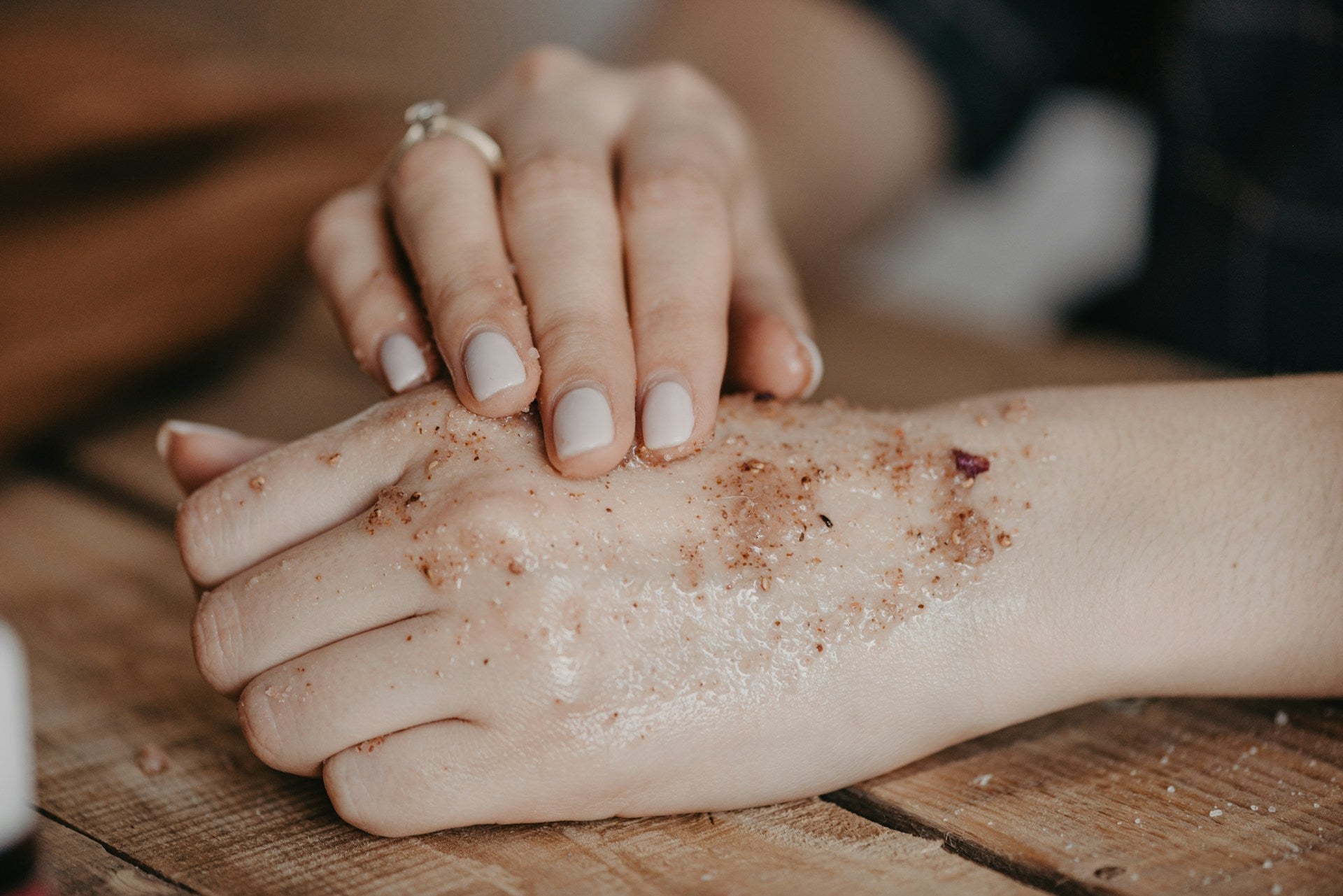Hey there! 💫
If you’ve ever stared at a stubborn dry patch on your arm, scratched an itchy spot raw, or picked out that flaky, itchy stuff off your scalp—I’m right there with you. 🙋🏻 Skin conditions like eczema, psoriasis, and even random rashes are annoying, embarrassing and the wish to have smooth, clear skin is the goal.
Sure, there are all the usual treatments: steroid creams, retinoids, prescription ointments. They work… until they don’t. 🫣 Or they come with side effects like thinning skin, stinging, withdrawal and a whole lot of frustration. That’s when most of us look for a more natural solution. We’re still going to go see our derma for sure, but a little something to help support too, is always welcome, isn’t it?
What to Know About Essential Oils for Skin Conditions
Essential oils, as we know, are potent extracts of plants. People have used them for centuries in traditional healing. Studies suggest some essential oils are antioxidant, antibacterial, antifungal, and anti-inflammatory—a cocktail of benefits for troubled skin. 🙌🏻
Think of tea tree oil helping to clear up acne-causing bacteria, lavender oil easing redness and irritation, and Bulgarian rose oil packing an antioxidant punch. These aren’t just folk remedies anymore—there’s ongoing research behind them. 🔬
Best Oils for Skin Repair (According to Science)
Different oils have different strengths, so it’s always fun learning about them:
Chamomile oil might calm eczema flare-ups—some studies even hint it could work better than low-dose hydrocortisone. And as we know, Oleia Chamomile Oil is not just for skin. 🌼
Peppermint oil has been shown to help with stubborn itchiness (pruritus)—exactly why Oleia Peppermint Oil is so good for inflamed patches and those scratch-all-night moments. 🍃
Lavender oil is the brightest of stars for calming irritation and redness, making Oleia Lavender Oil a gentle go-to for sensitive, easily triggered skin. 🪻
Bulgarian rose oil is loaded with antioxidants that soothe and nourish, so is Oleia Bulgarian Rose Oil, the lush option when you want your skin to feel comforted and pampered. 🌹
Aloe vera and curcumin (from turmeric) bring serious anti-inflammatory power for irritated, inflamed skin.
Sandalwood and lemongrass oils have been studied for their role in protecting skin from UV damage and even slowing early signs of skin cancer.
How to Use Essential Oils Safely
Since essential oils are potent. Too potent, actually, to use straight on your skin—they need a carrier oil like olive oil, almond oil, or coconut oil or the best one Oleia Pure Oil. 😉 Otherwise, they can cause more irritation instead of relief.
Are There Any Risks?
Absolutely, and before using anything on our body we have to know them. Essential oils might be “natural,” but that doesn’t mean risk-free.
Some oils can trigger allergies or contact dermatitis.
Overuse or undiluted application can lead to burns or rashes.
Inhaling too much can sometimes cause headaches or nausea.
And never, ever ingest essential oils—your liver will not thank you.
That’s why science is now looking at better delivery systems—to make oils safer, more stable, and more effective on the skin.
That’s why Oleia Blended Topical Oils are so unique. The formula isn’t just a splash of lavender here and peppermint there—it’s a biochemist’s blend of olive oil, moringa seed oil, pomegranate seed oil, and selected essential oils designed to deliver soothing compounds deep into the skin without irritation or harshness.
Having sensitive skin is a battle in itself and we need the proper partners to support it. Our derma and a bottle of our fave Oleia Oil might just do the trick. 💜
Show me your bottle and I’ll show you mine? ’Til next time! 👋🏻
xo, L.

References:
https://www.medicalnewstoday.com/articles/essential-oils-for-skin-conditions
https://www.sciencedirect.com/science/article/pii/S0254629921005548?via%3Dihub


